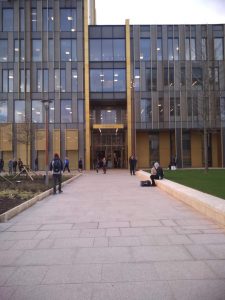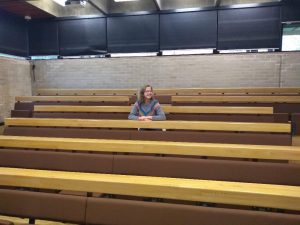Don’t judge me, but I have always secretly loved the start of term. While I don’t particularly like the deadlines or exams that sometimes accompany the first week back, I always relish the chance to get back into the routine of uni with a new timetable, new modules and, occasionally, even new societies.
The Spring 2019 term for me is an especially fresh start, as this week marks my first proper week back at university since May last year, having just finished my six-month long industrial placement in mid-December. Luckily, I’ve found it hasn’t taken me long to adjust back to “university life”. Or, at least, my version of it, because that phrase will mean something different to each student you meet! Course structure, amount of work and free time varies hugely between subject and year groups – so for this month’s blog I thought I’d go into some detail about how materials engineering students spend their time.
On a materials course, the ‘uni routine’ mostly means lectures: between 12-15 hours each week, which tends to work out as about 2-3 hours a day. Almost all examinable content, with the exception of labs, is delivered through lectures, so it’s important to show up for every single one! Because the year groups in materials engineering are so small – around 40 people – and we all do the same modules, it’s easy to get to know everybody on the course. Many of our lecturers become familiar faces too, as a lot of the new modules each year build upon modules taught by the same lecturer the previous year. It’s a great system because lectures feel more relaxed, so it’s much easier to ask questions when you don’t understand!
As well as lectures, materials students spend a lot of time in labs – easily the best part of the course. First and second year materials labs are very varied, so will mostly be led by demonstrators who explain concepts and work with you to get an end result. These sessions are around 3 hours long but are less regular than lectures and don’t happen every week. After third year, students have the opportunity to take on their own research projects and arranging lab time to complete our practical work becomes our own responsibility. For example, towards the end of my 3rd year project I spent around 4-6 hours a week in the lab, but every project is different.
Outside of lectures and labs, the rest is up to you! Non-timetabled time is free time so it’s your choice how you spend it, although a good portion of that time will probably be taken up by coursework or revising lectures. It’s just as important however to make time to relax and socialise, and the university has a huge range of opportunities to do so, including sports clubs, societies, interest groups, volunteering or activism, Guild events, nights out etc. And of course, there’s all the things that the city of Birmingham has to offer itself! What with coursework, lab sessions and the huge range of extra-curricular options available, no two weeks at university ever look the same.


